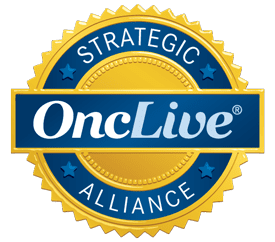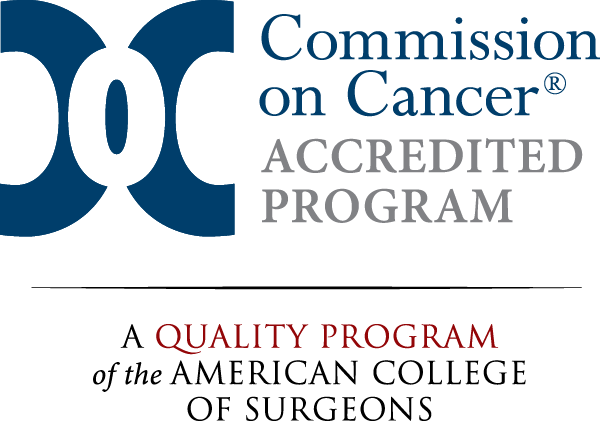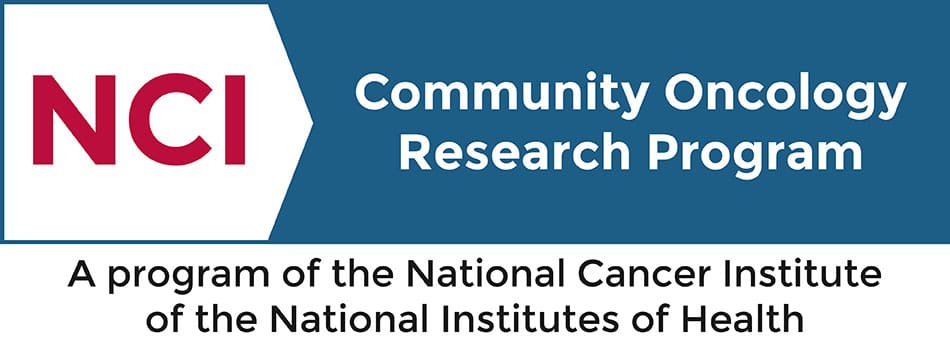The below content is an excerpt from Fight Colorectal Cancer’s Beyond Blue Magazine and features Capital Health Cancer Center Dietitians Sarah Crowley, MS, RD, CSO and Melissa Phelps, RD, CSO.
“Why don’t we get ‘real’ answers about life after surgery or treatment?” asked Christina Haywood, a stage III rectal cancer survivor diagnosed at age 34. She voiced what many survivors and caregivers feel when it comes to diet and nutrition guidance. “We hear, ‘Wait and see,’ and ‘Everyone’s different,’ or ‘At least you’re alive’—but this doesn’t answer what we’re really wondering and what we really want to know.” Food pyramids, special diets, and conflicting recommendations have caused great confusion in the cancer community, not to mention the spread of misinformation, particularly on social media. In fact, a recent study published in the Journal of the National Cancer Institute found that up to 30% of posts about cancer on social media are misleading or false. Patients need real answers—and fast.
To get to the bottom of the confusion, frustration, and hanger (you know—when hungry meets anger), we reached out to several accredited experts who work in a variety of institutions. While opinions still vary on some topics, consistencies like the importance of a well-rounded, balanced diet full of plant foods and the benefits of working with a dietitian or nutritionist remain. At the end of the day, what you eat is your choice. Here is reliable, credited information to consider as you make the smartest choice for your health, lifestyle, and preferences.
Q: Some CRC patients can eat things I can’t, and vice versa, but we had the same diagnosis and the same treatment. Why is this, and what should I do if I’m struggling to find a diet that works for me?
A (Sarah Crowley, MS, RD, CSO): Even if your treatment plan is the same as another patient, and you’re facing the same diagnosis, you are unique. Everyone’s systems react differently to treatment. Our genes, medical history, age, gender, and other factors determine our rate of digestion, absorption, and tolerance of foods. Your microbiome can change drastically during and after treatments, especially with radiation and chemotherapy, and this affects gut health—which ultimately decides which foods or combinations of foods your body can handle. Never compare yourself to someone else; we are all on different paths. Work with your doctor and a dietitian to understand why you may struggle to tolerate certain foods that others seem to enjoy without problems. Trial and error, along with journaling, can help you understand your body more. Focus on what makes you feel good, gives you energy, meets your specific nutritional needs, and satisfies your hunger—literally and physically.
Q: Are there any foods, across the board, that a CRC patient should be eating? Is there a “magic bullet” that you’ve seen work for just about everyone?
A (Sarah Crowley, MS, RD, CSO): There is no “one-size-fits-all” diet, the magic happens when it works for you. Many things need to be taken into consideration for a healthy diet to be successful: lifestyle, cancer stage, level of support, cancer treatment plan, side effects, economic status, likes and dislikes, and so much more. A tailored diet accounting for all of these factors is what will help you the most. Nutrition does play a major role in the prevention, treatment, post-treatment, and survivorship of CRC patients. Avoiding foods that may cause harm to the individual may be more important, for example fried foods, processed foods, and alcohol should be limited as much as possible.
Q: It seems like holistic, integrative medicine clashes with what’s considered Western medicine, and patients get caught in the crossfire and burdened with making the decision about who to trust. Why is this the case, and is there a middle ground and a way to incorporate strategies and tools from both “sides?”
A (Melissa Phelps, RD, CSO): My advice is to work closely with your cancer treatment team. Inquire about seeing an oncology dietitian to personalize nutrition recommendations for you during treatment. There are many ways to prevent or lessen side effects from treatment with nutrition and other natural remedies. Taking a proactive approach is likely to be more beneficial than a reactive one. Also, establish a relationship with your nurse navigator (if available). The nurse can address any questions you may have regarding medications, especially supportive medications like those for nausea, diarrhea, and constipation, and can clarify medical recommendations that you may have misunderstood.
It is important not to start a supplement before discussing it with your care team. Some supplements can interfere with your cancer treatment or medications. Also, supplements in the U.S. are not approved by the FDA (Food and Drug Administration). Therefore, what is in the supplement may not truly be what you are getting. Many companies that sell supplements use marketing campaigns geared toward patients with cancer to help drive sales. These supplements may be costly and can sometimes cause more harm than good.
Nonetheless, there may be a role in use of a particular supplement or two during your cancer treatment. Speaking with your care team, including the dietitian, regarding supplement questions would be most advantageous.
Q: Sugar feeds cancer cells—is this fact or crap? What is your recommendation on sugar to patients?
A (Melissa Phelps, RD, CSO): According to the 2017 American Institute of Cancer Research (AICR Cancer Risk Awareness Survey, which included 1,004 adult respondents in the U.S., 28% of Americans believe sugar directly feeds cancer. However, research shows that sugar is only indirectly linked to cancer since too much sugar in the diet can lead to excess body fat and unintended weight gain. Per the Centers for Disease Control (CDC), being overweight or obese increases the risk for 13 different cancers, including colon and rectal cancer. There are several reasons why excess body fat, particularly belly fat, can increase risk for cancer.
To understand the biophysiology, the basic building block of sugar is glucose. All of our cells need glucose to survive. In fact, when blood glucose is too low, you could pass out. The human body has unique pathways to convert non-glucose sources of energy into glucose to prevent you from passing out. Therefore, cutting out grains and fruits and any other sources of food that turn into glucose (sugar) will not necessarily be helpful, and, in fact, may be harmful.
Q: Avoiding foods with Genetically Modified Organisms (Non-GMOs) and organic foods: patients turn to many things when they have cancer. There’s so much fear, especially around eating. Tips for how patients can cope and where to turn?
A (Melissa Phelps, RD, CSO): To date, there is not enough clinical evidence to support that avoiding GMO foods can increase risk for cancer. There is also not enough evidence to support that eating organic foods can decrease risk for cancer. The American Cancer Society (ACS) and the AICR panels support these conclusions.
If you are concerned regarding the use of pesticides on fruits and vegetables, you can refer to the Dirty Dozen and Clean 15 lists that are released annually from the Environmental Working Group. These lists help guide consumers regarding organic vs. non-organic produce.


